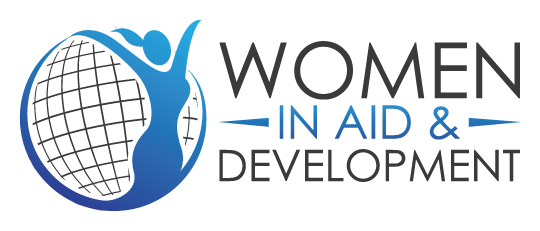5 minutes with Dr Bosibori Bett
WiAD: How did you first get involved with aid and development work?
Dr Bett: Following the completion of my studies in Australia, I actively searched for opportunities to contribute to supporting the economic development of developing countries. My belief in collaborative partnerships (#partnershipsforthegoals) drove me to implement an initiative to improve the livelihoods of the smallholder farmers in Kenya, Africa in collaboration with the Australian High Commission (Kenya), County governments, farmer associations and parastatals.
As a beneficiary of the Aid program (Australian Aid), I got inspired to give back to society and I put up my hand for a voluntary role to co-convene the Australia Awards alumni group (Kenya). I have been providing continued support since its inception, and am now hooked 😊.
WiAD: When did you become a WiAD member and why?
Dr Bett: I joined WiAD in January 2021. Having mentored Australia alumni awardees, I was looking for an opportunity to equip myself with the nuts and bolts within the aid and development space through a mentoring program, and WiAD is one such platform. I was also intrigued by WiAD’s value, “Women helping women to succeed” because I aspire to again lead up and lead down on aid and development initiatives one day. As a woman from a Culturally and Linguistically Diverse (CaLD) background, WiAD’s “welcoming for and respectful of all women” makes me have a sense of belonging and connectedness with others.
WiAD: How would you describe the sector when it comes to women's leadership roles?
Dr Bett: Based on my personal observation, I find that women are at the forefront in supporting and advocating the aid and development agenda. However, I am not certain about the number of women that steer or lead this agenda. I will not be surprised to learn of a male-dominated leadership cohort within the sector.
WiAD: Did you find it difficult to get roles, or face any difficulties?
Dr Bett: Not really. My involvement in aid and development began through collaborative partnerships with like-minded individuals and organisations. On relocation back to Australia, I was delighted to utilise my knowledge and skills in contributing to the management of various agriculture for international development programs for Africa and the Pacific Islands. Well, having said that I now desire to return to the aid and development space in a full-time role.
Most importantly, I would put up my hand for volunteering (even for a few hours a week). I can attest that volunteering provides a fantastic opportunity to learn about the development organisation as most of my achievements have been through volunteer roles.
WiAD: For someone who may come from a different field, for example, communications, and is looking to transition to a role in a development organisation, what tips would you share about how to get into the sector?
Dr Bett: Well, I believe communications cuts across several disciplines and sectors. To begin with, I would look out for the outputs and outcomes emerging from various developmental initiatives and offer to do commentaries or promotions. I would also subscribe to newsletters and media of various organisations to get abreast of what’s happening in the organisation. Memberships with such organisations are also a good pathway to actively reach out and network with them.
Most importantly, I would put up my hand for volunteering (even for a few hours a week). I can attest that volunteering provides a fantastic opportunity to learn about the development organisation as most of my achievements have been through volunteer roles.
A huge thanks to Dr Bett for sharing these incredibly helpful insights with us!
A WiAD Committee Member, Dr Bett also sits on the East African Community of Canberra board. She also works across the agricultural sector including highlighting the invisibility of sexual and gender minorities within agricultural research
